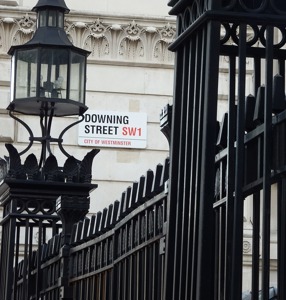It’ll come as no surprise, from the government that continues to talk about levelling up, that the agenda of levelling up was prominent within their most recent Spring Budget. This is illustrated through recent announcements on Freeports, on the location of a new HM Treasury Hub in the North East, and from the newly launched ‘Build back better – our plan for growth’ report.
Whilst the budget provided much needed clarity on regional spending, there were some conspicuous gaps within the budget, particularly on the future of English devolution and of Local Enterprise Partnerships, and some announcements that potentially missed the mark if we are to truly level up the country.
Clarity on the government’s eight new English freeports
The Chancellor announced eight new English freeports in the East Midlands Airport, Felixstowe and Harwich, The Humber, Liverpool City Region, Plymouth, Solent, the Thames, and Teesside. With innovative ideas and strengthened international trading links key to accelerating recovery and boosting the UK economy, these new freeport announcements should bring benefits to local businesses and help the UK wider economy. Businesses will look forward to working with local stakeholders to make this a step in the right direction.
The launch of Build Back Better – our plan for growth
Businesses and international investors are looking for a bold vision for the UK, which the plan for growth can help provide. Beyond clarity, the plan should prioritise joined-up thinking across different departments and regulators. It’s important that within this new plan, we don’t lose the foundations of the Industrial Strategy, which remain the correct fundamental building blocks for the UK's long-term competitiveness. Maintaining a local approach is also critical, especially as we look to the recovery from COVID-19, and the levelling up agenda. It is important to build on the hard work and insights that went into developing local industrial strategies and more recently recovery plans.
Clarity on the future of the £4.8bn Levelling up fund
Clarity on the fund is welcome, especially with levelling up a priority for many businesses. Whilst the investment itself into regions is positive, the fund is aimed at providing small injections of cash into communities. It remains unclear, therefore how it will facilitate strategic, long-term investments at the scale needed to genuinely level up communities, and to provide businesses with the much-needed incentives to invest in regions. Additionally, the fund is aimed specifically at councils, ignoring the vital role that Local Enterprise Partnerships can play in delivering for their local business communities. Finally, these small, short term bids come with a high administrative cost to councils, which is particularly challenging at a time when their resources are focused on supporting those businesses hardest hit by the pandemic. Long-term funding settlements should be a priority in the future to allow local leaders to deliver against local needs in a strategic, long-term way. In doing so it better allows businesses to engage on strategic plans, and for those plans to reflect the strengths and needs of the region, and growth opportunities for the future.
£220m Community Renewal Fund Prospectus Launch
This fund seeks to act as a pilot for the long-awaited, future UK Shared Prosperity Fund (UKSPF). The launch is welcome in providing much-needed progress before a full scheme begins. However, given EU funding ended in December 2020, there is now a gap in the pipeline for funding new projects which is likely to lead to continuity issues for existing projects – many of which are vital for levelling up. Government should urgently announce plans for the UKSPF, considering how funding is locally and regionally allocated, and how the process can be streamlined and improved now we have left the EU. This will be critical to giving those regional businesses who rely on funds from the UKSPF clarity on where future funding will come from and how they can access it.
Further clarity is needed on English Devolution and the Future of Local Enterprise Partnerships
Conspicuous in its absence is any reference to English Devolution and details on the future of Local Enterprise Partnerships (LEPs). If levelling up is to be successful, there is a vital role for strong local leadership operating at a functional economic scale. Whilst the government has been making progress behind the scenes, including launching a series of consultations on local government reorganisation in Cumbria, North Yorkshire and Somerset, there was no further detail on devolution in England, including any update on the long-awaited Devolution and Local Recovery White Paper.
Beyond this, LEPs played absolutely no part in this budget announcement. LEPs play an important role across the country in engaging with businesses within regions, providing locally tailored business support through Growth Hubs, and delivering against locally consulted strategic plans to drive productivity growth across the country. With their key source of funding – the local growth funds set to end and no clarity on their future funding there is growing uncertainty around their future.
It is key that clarity is provided on the future of English devolution to ensure places have the capacity to respond to local business needs and can support in delivering the levelling up agenda through locally tailored approaches.
What next?
The CBI is launching a series of regional scorecards in May. These will bring together data measuring an area’s strengths against the key drivers of productivity, so that places can determine where to focus their attention when it comes to interventions aimed at levelling up the country.
Alongside this we will be developing regional campaigns. This will involve identifying three regional priorities based on consultation with members, and the data within the scorecards.
The CBI continues to advocate for a strong regional voice as part of the levelling up agenda, and these regional campaigns will be used as the foundations for our future regional work, including to identify priorities for future fiscal events.
You can find out more, including how to get involved. Please contact Hannah Richmond if you would like to find out more about our regional policy work.
















